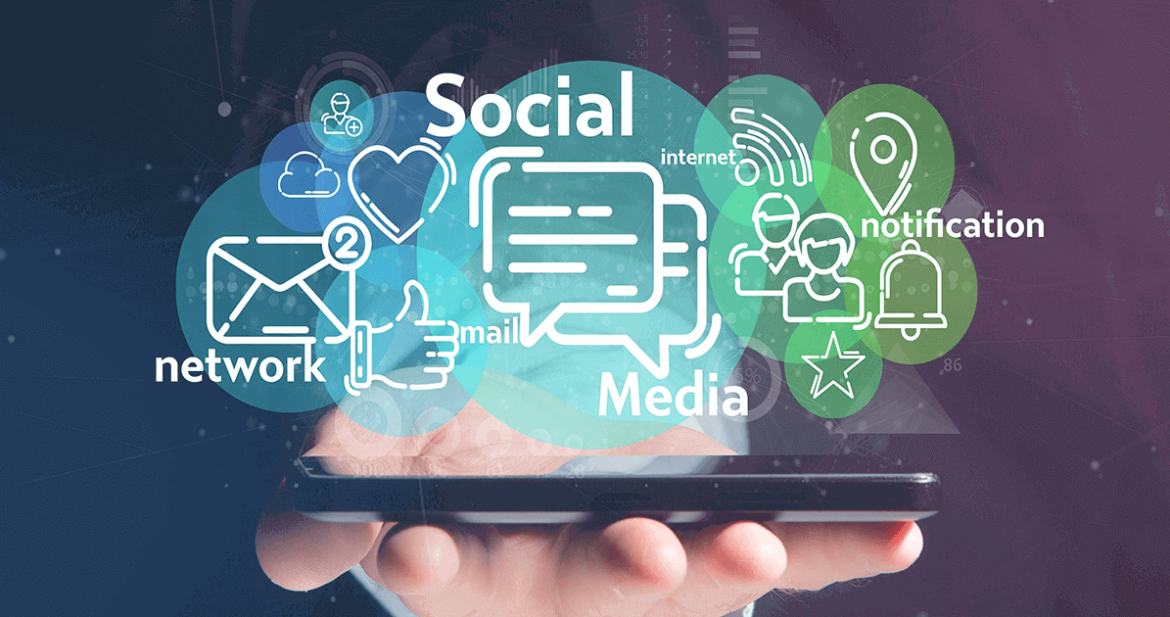Defining the digital communication on human interactions
Exploring harness the advantages of digital communication while nurturing meaningful, fulfilling relationships in our lives

\In the rapidly evolving landscape of modern digital communication, the digital revolution has brought about profound changes in the way we interact with one another. Digital communication, encompassing text messaging, social media, email, video calls, and more, has become an integral part of our daily lives.
While it offers numerous benefits and conveniences, it also raises complex questions about its impact on interpersonal relationships. In this blog post, we will explore the multifaceted effects of digital communication on our connections with others, both positive and negative, and discuss strategies for maintaining healthy relationships in the digital age.
The Digital Communication Boom
Before delving into the impact, let's take a moment to appreciate the scale of the digital communication revolution. The rise of the internet and the proliferation of smartphones have reshaped the way we communicate.
We are more connected than ever before, transcending geographical boundaries and time zones. Social media platforms like Facebook, Twitter, Instagram, and TikTok have transformed the way we share our lives and connect with others.
Instant messaging apps such as WhatsApp, iMessage, and Snapchat have made it easy to stay in constant touch with friends and family. Video conferencing tools like Zoom and Skype have brought face-to-face communication to our screens, making it possible to connect with anyone, anywhere, at any time.
The Positive Impact of digital communication
1. Enhanced Connectivity
One of the most apparent advantages of digital communication is the enhanced connectivity it offers. Long-distance relationships, whether romantic, familial, or friendships, can thrive thanks to video calls and instant messaging. This has bridged the gap between continents and allowed people to stay emotionally connected regardless of geographical distances.
2. Convenience and Efficiency
Digital communication provides unparalleled convenience. Gone are the days of waiting for snail mail or scheduling in-person meetings for minor discussions. With a simple message or email, we can convey information swiftly and efficiently. This convenience has not only saved time but also increased our productivity in both personal and professional spheres.
3. Expanding Social Circles
Social media platforms have enabled us to expand our social circles and connect with people who share our interests, even if they live halfway across the world. This has led to the formation of online communities and support networks, fostering a sense of belonging and camaraderie among like-minded individuals.
4. Staying Informed
Digital communication allows us to stay informed about global events and trends in real-time. We can easily access news, research, and expert opinions, which can stimulate thoughtful discussions and broaden our perspectives.
The Negative Impact of digital communication
While digital communication has undoubtedly enriched our lives in many ways, it is not without its downsides. Here are some of the negative effects it can have on interpersonal relationships:
1. Superficial Connections
One of the most significant criticisms of digital communication is the potential for superficial connections. Online interactions often lack the depth and nuance of face-to-face conversations. Emotions can be misinterpreted, and important non-verbal cues such as body language and tone of voice are often lost in translation.
2. Isolation and Loneliness
Paradoxically, the very tools designed to connect us can sometimes lead to feelings of isolation and loneliness. Excessive time spent on social media, comparing our lives to carefully curated online personas, can lead to a sense of inadequacy and disconnection from real-world relationships.
3. Miscommunication and Conflict
Digital communication can be a breeding ground for miscommunication and misunderstandings. Text messages and emails can be easily misinterpreted, leading to unnecessary conflicts. Additionally, the relative anonymity of online interactions can sometimes encourage people to be less considerate or empathetic in their communication.
4. Privacy Concerns
Sharing personal information and experiences online can raise significant privacy concerns. Oversharing or the misuse of personal data can lead to breaches of trust and damage relationships. The constant surveillance and tracking of our online activities can also erode our sense of autonomy.
Navigating Digital Relationships Wisely
In this digital age, it's crucial to strike a balance between the advantages and disadvantages of digital communication to maintain healthy interpersonal relationships. Here are some strategies to help you navigate the digital realm while preserving the authenticity and depth of your connections:
1. Prioritize Face-to-Face Interactions
While digital communication has its place, prioritize face-to-face interactions whenever possible. Nothing can truly replace the richness of in-person conversations. Whether it's meeting for coffee, having a family dinner, or spending quality time with friends, make an effort to connect in the physical world.
2. Practice Digital Etiquette
When communicating digitally, practice good etiquette. Be mindful of your tone, choose your words carefully, and consider the impact of your messages on the recipient. Remember that behind every screen is a real person with feelings and emotions.
3. Set Boundaries
Establish clear boundaries for your digital interactions. Avoid the temptation to be constantly connected. Designate tech-free zones and times, such as during meals or before bedtime, to foster meaningful in-person interactions.
4. Limit Social Media Consumption
Be mindful of your social media consumption. Limit the time you spend scrolling through feeds, and consider curating your online connections to include those who genuinely contribute positively to your life.
5. Communicate Openly
In relationships, open and honest communication is key. If you feel that digital communication is causing issues in your relationships, talk about it with your loved ones. Share your concerns and work together to find solutions that work for everyone.
6. Educate Yourself on Digital Security
To protect your privacy and the privacy of your loved ones, educate yourself about digital security. Use strong, unique passwords, enable two-factor authentication, and be cautious about sharing sensitive information online.
The impact of digital communication on interpersonal relationships is undeniably profound. It has reshaped the way we connect, enabling us to bridge geographical gaps, share experiences, and expand our social circles. However, it also comes with its challenges, including the risk of superficiality, isolation, and miscommunication.
To navigate the digital age successfully, we must strike a balance between our online and offline interactions.
Prioritizing face-to-face connections, practicing digital etiquette, setting boundaries, and communicating openly are essential strategies for preserving the authenticity and depth of our relationships. With these approaches, we can harness the power of digital communication to enhance, rather than diminish, the bonds we share with others in this ever-evolving digital age.
What's Your Reaction?

















